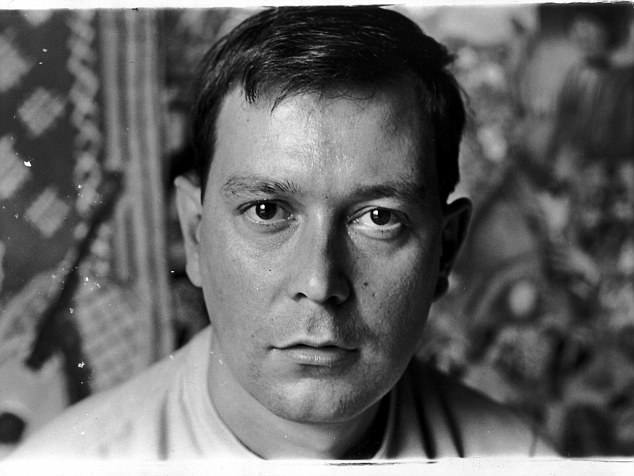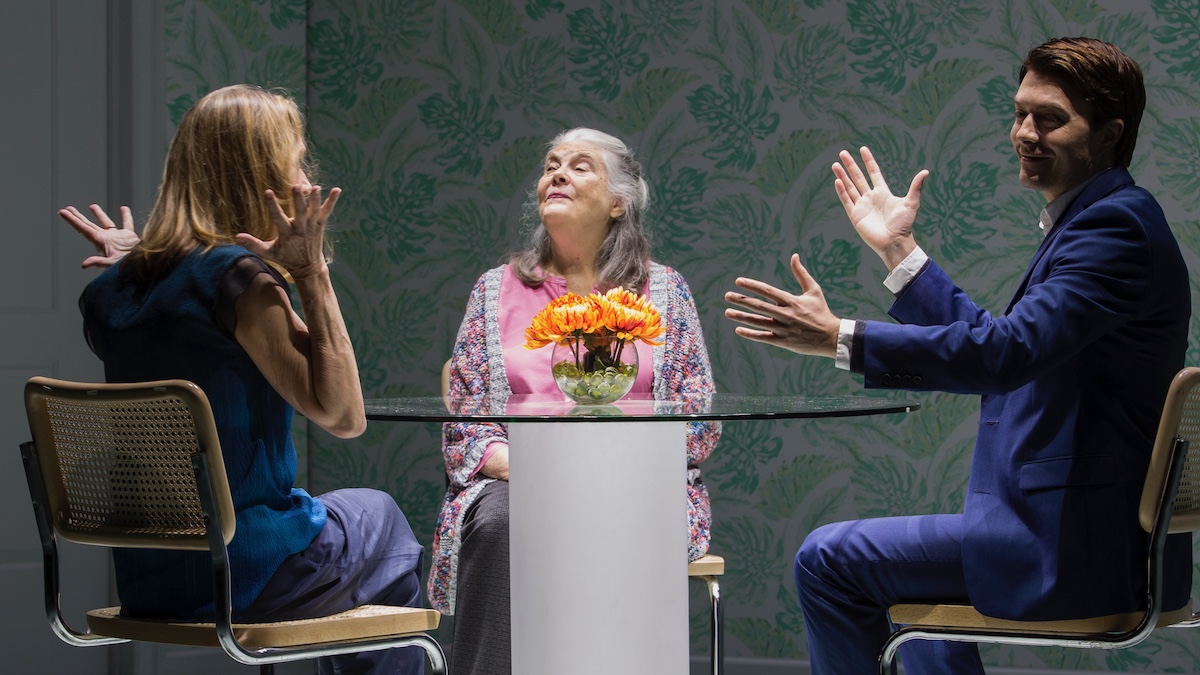
The Samuel French catalogue is textured with the work of some of the world’s most notorious and impactful playwrights from all over the globe. It just so happens that 2017 marks the 50th Anniversary of the untimely death of playwright Joe Orton, whose work has not only stood the test of time but continues to be both hilarious and impactful for theatre artists of all types. To help commemorate Orton’s work and its impact, Samuel French’s Licensing Manager David Kimple sat down to chat with educator Aaron C. Thomas, actor Kate Reynolds, and producers Annie Keefe and David Dreyfoos. Below is the transcript of their conversation.
Aaron C. Thomas is an assistant professor of theatre history and literature at the University of Central Florida, and writes about the intersections of gender, sexuality and violence in theatre and film.
David Dreyfoos is the Associate Producer/Director of Production at the Westport Country Playhouse. He produces all 5 plays during the season, in addition to budgeting, casting, season selection, and contracting of actors, designers and directors.
Annie Keefe has spent 40+ years as an Equity stage manager, on Broadway and in Regional theatre. She was the Co-Artistic Director with Joanne Woodward of the Westport Country Playhouse.
Kate Reynolds is a San Diego based actress, with ties to the New York City and San Francisco theatre scenes. I’ve recently appeared in two world-premiere productions – Margin of Error by Will Cooper with The Roustabouts at the San Diego Repertory Theatre, and Elijah by Judith Leora at Bristol Valley Theatre, New York.
David Kimple: Thank you all so much for taking the time to chat about Orton. We (Samuel French) are really thrilled to be taking a bit of a deeper dive into the ways that Orton’s body of work continues to impact every kind of theatre-person. What is your relationship to Orton’s work?
Aaron C. Thomas: I naturally gravitated toward Orton’s work when I first began studying violence and sex together. Orton was certainly not the first British playwright to write about intersections between sex and violence, but Orton and David Rudkin were pioneers in thinking about how queerness and violence were linked. Orton, as a part of what were then called “Angry Young Men” in Britain, represented a rebellious spirit in British writing at the time, but Orton’s work was different from that of other playwrights because his characters also have rebellious sexualities. I think we can also say that Orton’s work is a part of a longstanding tradition of gay British writing that was critical of society and critiques that society through mockery and absurdity. Imagine, if you will, a clear trajectory from Oscar Wilde’s The Importance of Being Earnest, to Joe Orton’s What the Butler Saw, through to Mark Ravenhill’s Handbag, and I think you’ll see exactly what I mean.
Annie Keefe & David Dreyfoos: The Playhouse produced Loot (Directed by David Kennedy) as part of its 2013 season, and What the Butler Saw (directed by John Tillinger) in 2015. Annie worked on Entertaining Mr. Sloane at Long Wharf many years ago.
Kate Reynolds: I was first introduced to Orton as an undergraduate theatre major at Yale University, and was completely flabbergasted by his seeming irreverence for everything he touched. I was then lucky enough to perform in What the Butler Saw at Bristol Valley Theatre, which further deepened my appreciation for Orton’s twisted, genius sense of humor.
David: What the Butler Saw is of my favorite plays of all time but lately when I think about Orton’s work I find myself very drawn to Entertaining Mr. Sloane because of how dark and twisty it is. I read it again earlier this year and found myself gob smacked and delighted by just how subversive it can be. Do you have a favorite of his plays? If so, why?
Annie & David: Loot is a real stand out for us. Though Entertaining Mr. Sloane has attracted many stars both on stage and screen across the decades, somehow Loot seems to us to be the most accessible of his plays.
Aaron: Loot. That’s easy. I love the young criminals at the play’s center, but mostly I love the way that the play mocks parents. It’s a play that believes in mocking the parent-child relationship, and thinks the idea of having respect for parents is silly. The play also has a familiarity with the dead that is completely charming and still has the ability to shock audiences. Why should anyone have reverence for a corpse? This play doesn’t think anyone should. It’s charming and surprising and still very very funny.
Kate: How do you choose? Loot was the first Orton play I was exposed to, and I found it hard not to love a play that involves a glass eye, a set of denture-castanets, and the dubious use of a Mars Bar. Orton actually attended his mother’s funeral during the London run of Loot, and brought her false teeth to the cast to use in the play, as he thought they might be amused by them! Of course, What the Butler Saw has a special place in my heart – it so brilliantly skewers everything from psychiatry and religion to marriage and gender, all in the trappings of a classic British sex farce. It fully demonstrates that to Orton, nothing was sacred.
David: Why should a theatre produce a Joe Orton play now?
Aaron: Well, first of all, they’re very funny. Theatres who are doing Noel Coward or Terence Rattigan or Oscar Wilde should definitely also be looking at Orton. His plays are sexier than all three of the others’, and just as funny. Plus, Orton’s plays really ask us to rethink many of the norms we take for granted in society.
Annie & David: Orton seems to be timely no matter when you produce it. He takes society to task in a horrifyingly, challenging – yet humorous way. He had a really dark sense of mischief.
Kate: Joe Orton remains as relevant now as he was when he was writing. Not only are his plays hysterically funny, but they are guaranteed to stir up an audience and leave them talking. And as an added bonus, he wrote some deliriously delightful parts for actors!
David: Do you have any tips for people working on one of these shows?
Kate: No idea is too over-the-top – give yourself over to the lunacy and embrace the absurdity, and don’t be afraid to look like a fool.
Annie & David: You have to get into Orton’s head to understand the deep seated sociological intent. John Lahr dubbed him a “Modern Lord of Mischief”, and attributes his success as a playwright to his ability to scandalize and scintillate his audiences simultaneously. Lahr goes on to write “A curious chemistry of anger, optimism, and erudition blessed with a comic style unique to his era” In other words – something for almost everyone!
Aaron: These plays are challenging precisely because the characters are almost completely without standard morals. They reevaluate morality, inventing new moralities, perhaps queer moralities. Actors and directors will need to lose some of their own moral habits if they’re working on an Orton play. Orton’s characters are not stuck in old-fashioned standards, and directors and actors can’t be either.
David: I love this idea that artists cannot cling to the old-fashioned standards. This year is the 50th Anniversary of the death of Joe Orton. Why do you think we’re still talking about his work after all this time?
Aaron: There have been several large-scale returns lately to early twentieth century plays in English by people like John Galsworthy and Harley Granville-Barker. These plays have become classics, sure. They address old problems in old ways. But as many of us return to classic plays in English, we are looking for writers who were ahead of their own time, and writers who bucked tradition in various ways. There are dozens of incredible female playwrights from this period that deserve our attention – Sophie Treadwell, Djuna Barnes, and Elizabeth Robins, especially – but I think it is exciting for us also to look to unapologetically queer writers who broke ground for today’s theatre. Orton is, without doubt, one of those.
Kate: Orton was a brilliant satirist, who wasn’t afraid to expose the seedy underbelly of contemporary society. He lampooned hypocrisy in all its forms, which, if anything, is perhaps even more necessary today. Orton knew humanity’s deepest, darkest secrets and desires, and defused their danger by mocking them. Furthermore, he was an outrageous and outspoken gay man at a time when it was still dangerous and illegal in Britain, bringing a voice to many hiding in plain sight. We are still talking about Orton because not only does he still make us laugh, but he still makes us confront truths about ourselves and our societies. He was truly ahead of his time.
Annie & David: He was so provocative. He had so much promise and his plays continue to mimic society in a bizarre and timely way.
Aaron: More than anything, I think we are entering a severely moralistic age; even folks on the left, people who believe in freedom and love and those good things, can be awfully stuffy these days. Orton’s plays have a lot to teach us about this kind of moralizing. His plays really ask us to loosen up, something we could all afford to do a bit more, I think.

Inspired by True Events: A Conversation with Playwright Ryan Spahn

Plays About Technology

